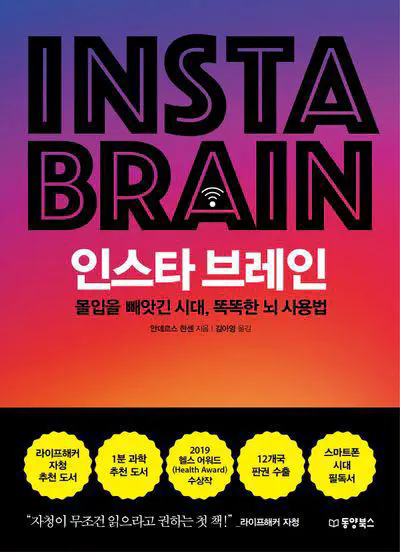Instagram Brain

If you take a moment to look around you, you’ll likely see several people with their hands on their smartphones, and they’ll be glued to them. They’ve taken over our lives, and it’s hard to imagine our lives without them. It has allowed us to collect all the data we want, stay in touch with whoever we want, and enjoy all the entertainment we want. But I also think that people have become too attached to their smartphones these days. Even I was living that way right now. As with light, there is darkness, and I think it’s time to think about the dangers of smartphones.
The rise in depression, decreased attention span, and social isolation due to fewer relationships between people are just a few of the phenomena that have emerged since the advent of smartphones. Of course, there is not enough evidence to attribute all of these phenomena to smartphones alone, but the high correlation coefficients suggest that there is indeed some connection. In the book, it is said that humans have evolved from the beginning of time to now with a focus on survival, but in recent years, the world has changed drastically and we have a life with smartphones, and as a result, humans have become addicted to smartphones (I think it’s more than addiction, it’s dependence). It’s easy to see how smartphones have had a huge impact on human beings just by watching people turn off and on their smartphones when they have nothing else to do.
Dopamine isn’t actually released when you feel good, it’s released to make you feel good. In other words, it’s an engine. Dopamine is released before you eat, not while you’re eating, so if your dopamine system is messed up, you won’t be able to focus on anything. However, smartphones and social media have a huge impact on our brains by releasing dopamine every 10 seconds. Based on the above examples, it seems obvious that we should take a break from our smartphones and social media. After all, if we use social media well, we can meet more people, build relationships, and become better versions of ourselves, right? This is certainly true. However, it’s important to keep in mind that social media can be quite challenging.
Evolution has always been about survival without weighing the pros and cons, so what looks bad to us is actually a remnant of evolution. In the same way that when we don’t have enough time to make a rational decision, or when we can’t, the brain immediately provides an answer in the form of emotion. The world often touts the idea that reason trumps emotion and is best. But is reason really superior to emotion? I don’t think so. I think it would be foolish to dismiss emotion as a factor in any rational decision-making process (which doesn’t mean that reason isn’t important), but it’s actually better to embrace it because it’s an unavoidable and uncontrollable part of life. Emotion and reason are inseparable, and it’s pointless to try to weigh them. Emotion and reason are not inseparable, and it seems that we need to merge them into one form of something else.
I was happy to learn a lot of practical things about how our brains work, why multitasking is bad for the brain, and how long-term memories are made. I’ve known for a long time that I’m addicted to my smartphone, but the fact that I can’t seem to get rid of it easily makes me wonder if the dopamine system in my brain is already damaged. However, I think it’s better to aim for a life of constant improvement instead of pessimism because the effort is meaningful and significant. It would be fun to make a goal of not using a smartphone.